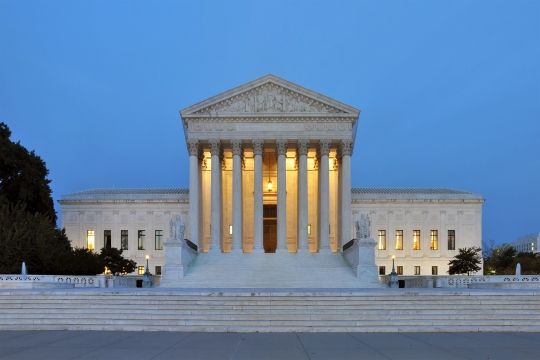With the impending turnover of the Senate, pundits and political commentators are looking at the lame-duck session as a preview of how Republicans and Democrats might work together in the 114th Congress. An embattled, tense session could indicate a similar working pattern in the new Congress, while a lame-duck marked by cooperation could point to a more productive term. While it’s likely that members of two parties will not reach agreement on a number of key issues in the next few weeks, one in particular stands out as a possibility for cooperation: judicial nominations.
Currently, 32 nominees to the federal bench await confirmation in the Senate, including the controversial Michael Boggs, who faces opposition by a number of civil rights groups and leaders. By sitting on the nominations of so many judges, the Senate has failed to fill a number of the 64 current vacancies on the federal bench. Twenty-two of those vacancies are in districts with a judicial emergency, where prolonged vacancies or a high volume of pending cases in districts or circuits with vacant seats has created a dire backlog on filings and cases. The Senate Judiciary Committee this morning held hearings on four of these nominees and a discussion of nine others, a small yet potentially promising sign that their nominations might move toward confirmation.
As Americans, we should be deeply concerned by the injustice these judicial vacancies cause. This failure equally contradicts our Jewish values, going against the pattern of our tradition. As far back as Moses, judges were appointed to help ensure justice. The Great Sanhedrin, which stood for over 800 years until 356 CE, was comprised of 71 elders (this number was based on the 70 elders plus Moses in Genesis 18). Maimonides, the 12th century philosopher and rabbi, stated in his Guide for the Perplexed, “The word tzedakah is derived from the word tzedek, which means justice; justice being granted to everyone who has a right to something, that which one has a right to, and giving to every being that which corresponds to their merits” (Guide for the Perplexed, Part 3, Chapter 53). With 64 judicial vacancies, many Americans are not able to access the tzedek, or justice, they deserve.
Related Posts
Image

Supreme Court Confirmation Hearings Begin on Monday, March 20
On January 31, 2017, President Trump nominated Judge Neil Gorsuch of the Tenth Circuit Court of Appeals to fill the vacancy on the Supreme Court. His confirmation hearing has been set to begin on March 20, 2017.
